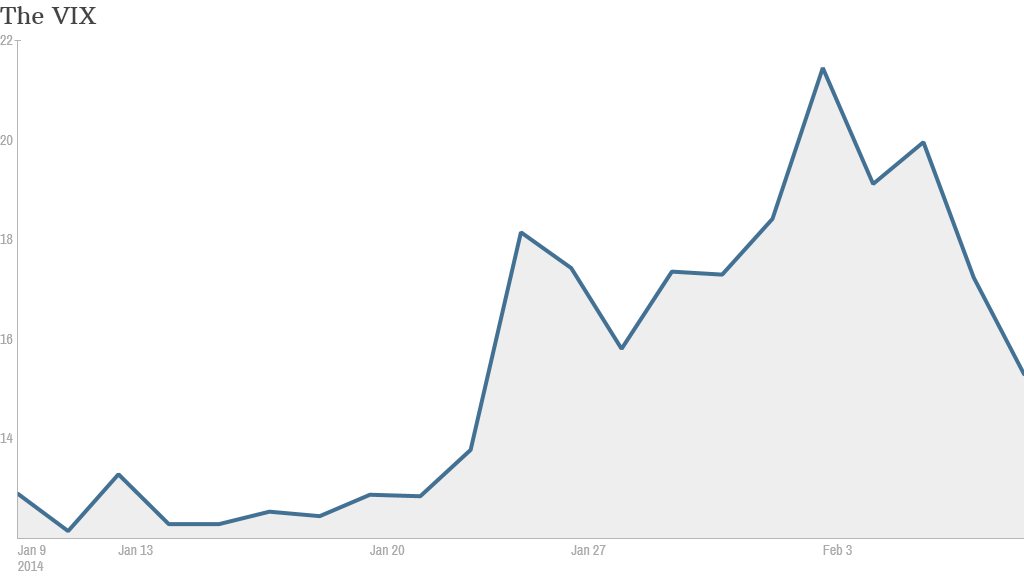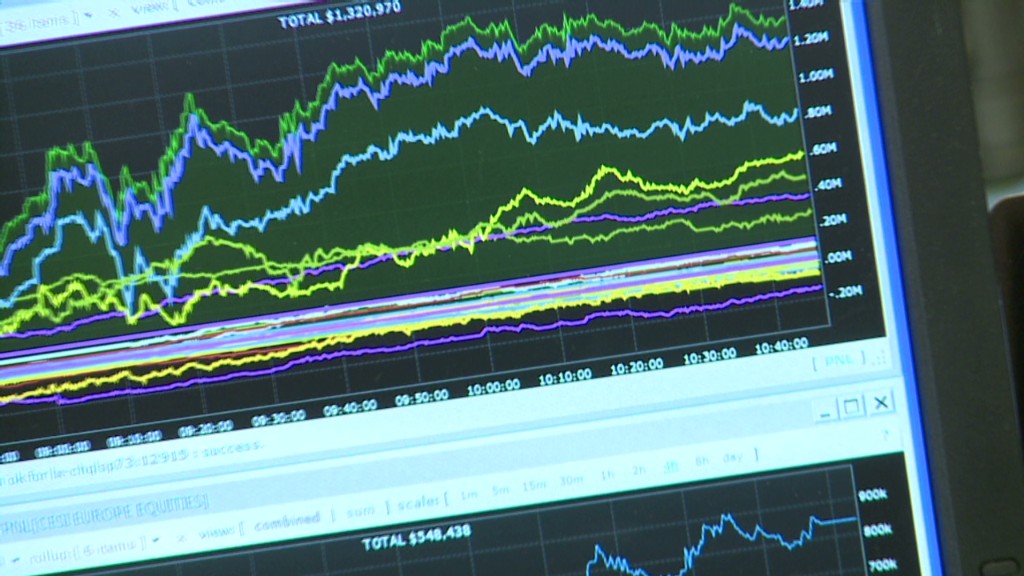
Buckle up investors, it looks like it's going to be a bumpy ride for stocks for the foreseeable future.
Big swings in the market have been a common theme already this year.
The CBOE Volatility Index (VIX), or VIX, is up nearly 15% so far in 2014. And CNNMoney's Fear and Greed Index, which tracks the VIX and six other gauges of investor sentiment, has been in Extreme Fear mode for more than a week. It may stay like this for a while.
"There's probably going to be a lot of up and downs in the next few months," said Anthony Valeri, an investment strategist with LPL Financial.
That's because investors are trying to get a sense of where the economy actually stands, said Brad McMillan of Commonwealth Financial Network. Weaker than-expected economic reports, including two straight months of tepid jobs growth, are upending the notion that the economy is picking up steam, he said.
And while unseasonably cold weather may be to blame, investors can't know for certain.
Related: Job growth remains weak
Then there's the Federal Reserve.
The central bank announced in December that it would start scaling back, or tapering, the size of its monthly bond purchases. The main reason for this was that the Fed felt that the recovery was sustaining momentum. But it's no longer a slam dunk that the Fed will taper again at its next meeting in March.
Turmoil in the emerging markets is only adding to the confusion for investors.
So how can investors protect themselves, or even profit from, these big swings?
Valeri urges investors to buy on the dips. "When you see these bouts of volatility, you should treat them as a buying opportunity," he said.
Related: The Great Unrotation? Bonds top stocks
But McMillan sees it differently. His advice: sit tight.
"If you have a multi-year time frame, this is noise," he said. "More money has been lost trying to time the market than with market fluctuations."
There are also financial products designed to do well when the market goes haywire, but they're not for the faint of heart.
Todd Salamone of Schaeffers Research, an options trading advisory firm, encourages investors to study the ups and downs of individual stocks rather than look at the overall market.

Options, which are contracts that give investors the right to buy or sell a stock at a specific price on or by a set date, typically thrive off volatility. For example, the price of certain kinds of options for companies that are rumored takeover targets will often spike well before the stock price moves.
Traditionally reserved for big time Wall Street players, options are now offered to individual investors by leading online brokers such as Charles Schwab (SCHW), E*Trade (ETFC), and TD Ameritrade (AMTD).
But option trading is risky business, and definitely not for everyone. Large investment firms often use them to hedge their bets.
The most important thing: "know what you're buying, understand how it works," Salamone said.
Another tool: exchange-traded funds designed to perform well in times of volatility.
The CBOE Emerging Markets ETF Volatility (VXEEM), for example, tracks volatility in emerging markets companies. It's up more than 20% so far this year due to worries about the health of the so-called "Fragile Five" emerging markets.
But again, caution is urged before delving in, as investors can lose a lot of money should the markets smooth out and go about their regular business. To that end, this ETF plunged 7% on Thursday when the broader market rallied. And it fell another 3% Friday as stocks rose again.
So Valeri only recommends volatility ETFs for very aggressive investors.


